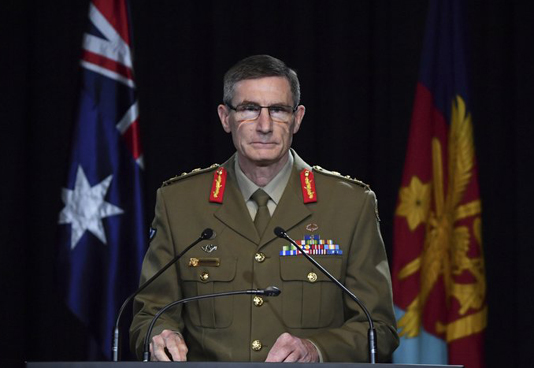CANBERRA, Nov 19, 2020 (BSS/AFP) – Australia’s top general said
Thursday there was credible evidence that his special forces unlawfully
killed 39 unarmed civilians and prisoners during the war in Afghanistan,
referring the matter to a special war crimes prosecutor.
Receiving damning findings of a years-long investigation into military
misconduct in Afghanistan between 2005 and 2016, Chief of the Defence Force
Angus Campbell said a “destructive” culture of impunity among elite troops
led to a string of alleged murders and cover-ups spanning almost a decade.
“Some patrols took the law into their own hands, rules were broken,
stories concocted, lies told and prisoners killed,” Campbell said,
apologising “sincerely and unreservedly” to the people of Afghanistan.
“This shameful record includes alleged instances in which new patrol
members were coerced to shoot a prisoner in order to achieve that soldier’s
first kill, in an appalling practice known as ‘blooding’.”
The accused junior soldiers would then stage a skirmish to account for the
incident, the report found.
The military’s own inspector general on Thursday produced a harrowing —
and heavily redacted — 465-page official inquiry that detailed dozens of
killings “outside the heat of battle”.
It recommended 19 individuals be referred to Australian Federal Police and
compensation be paid to the victims’ families.
Campbell went a step further, saying those involved in the alleged
unlawful killing of 39 people had brought a “stain” on their regiment, on the
armed forces and on Australia and would be referred to the office of the
special investigator for war crimes.
Campbell also moved to revoke some distinguished service medals awarded to
special operations forces who served in Afghanistan between 2007 and 2013.
After the September 11, 2001 attacks, more than 26,000 Australian
uniformed personnel were sent to Afghanistan to fight alongside US and allied
forces against the Taliban, Al-Qaeda and other Islamist groups.
Australian combat troops officially left the country in 2013, but since
then a series of often-brutal accounts have emerged about the conduct of
elite special forces units.
They range from reports of troops killing a six-year-old child in a house
raid to a prisoner being shot dead to save space in a helicopter.
– ‘Brutal truths’ –
Australia’s government attempted to cushion the blow of the report, with
Prime Minister Scott Morrison telling Australians last week to brace for the
“honest and brutal truths” contained within the redacted document.
Morrison also called his Afghan counterpart Wednesday to foreshadow “some
disturbing allegations” that the government was taking “very seriously”.
The office of President Ashraf Ghani had a different interpretation of the
conversation — saying in a series of tweets that Morrison had “expressed his
deepest sorrow over the misconduct” — a characterisation that was strongly
disputed by Australian officials.
Last week, Morrison announced the appointment of a special investigator to
prosecute the alleged war crimes, a move aimed at forestalling any
prosecution at the International Criminal Court.
An independent panel was also set up to drive cultural and leadership
changes within the armed forces.
The revelations are a serious blow to the prestige of the country’s
military, which is widely revered by Australians.
Its historic campaigns — from Gallipoli in World War I to Kokoda in Papua
during World War II — have played a crucial role in fostering the country’s
identity, independent of colonial power Britain.
Australia’s government had previously spent years trying to suppress
whistleblower reports of the alleged wrongdoing, with police even
investigating reporters involved in bringing those accounts to light.
The matter first came to public attention in 2017 when national
broadcaster ABC published the so-called “Afghan files”, which alleged
Australian troops had killed unarmed men and children in Afghanistan.
In response, Australian police launched an investigation into two ABC
reporters for obtaining classified information — even raiding the
broadcaster’s Sydney headquarters last year, before dropping the case.



